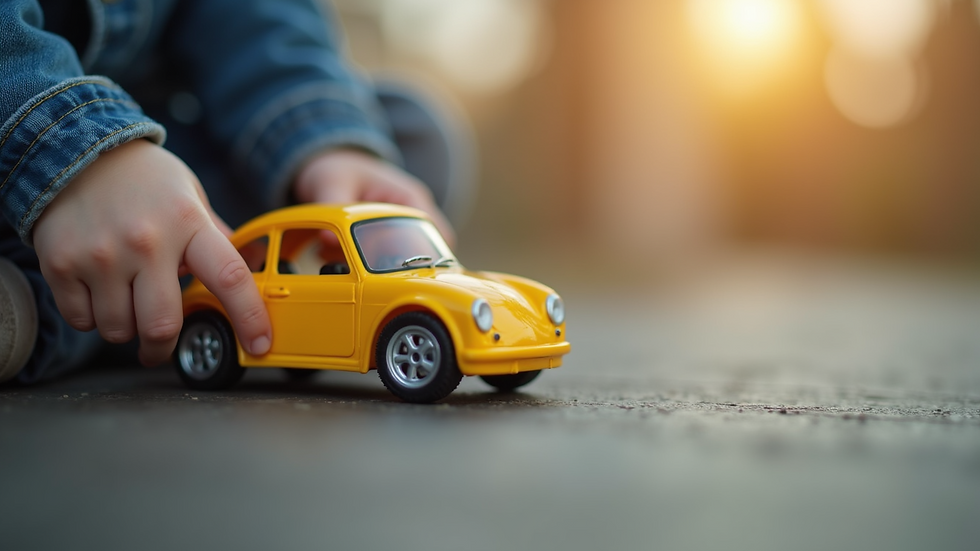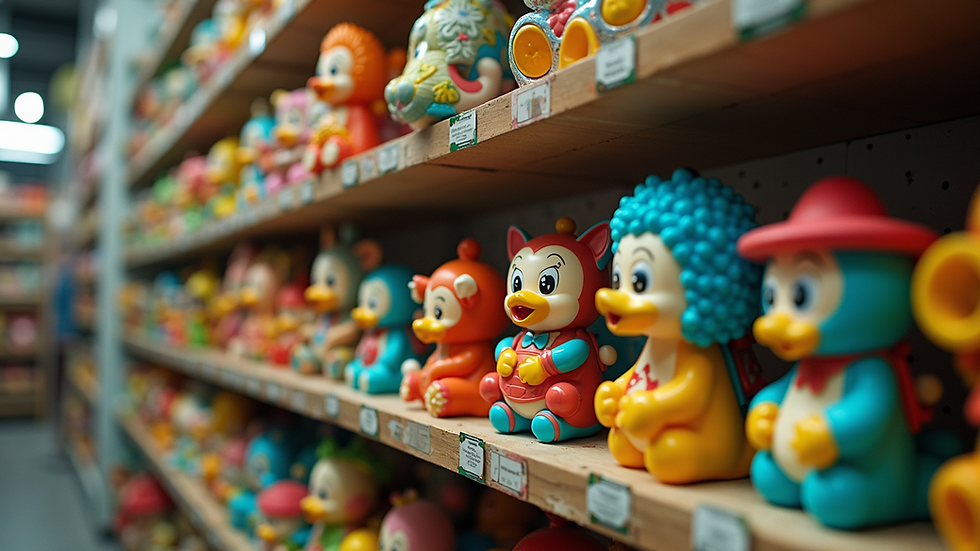Why Preloved Toys Are the Perfect Choice for Kids
- Trisa Hansen
- Aug 16, 2025
- 4 min read
Choosing toys for children can be a delightful yet challenging task. With so many options available, parents and caregivers often seek choices that are not only fun but also practical and sustainable. One option gaining popularity is second-hand toys for kids. These toys offer numerous benefits that go beyond just saving money. In this article, we will explore why second-hand toys are an excellent choice for children, covering aspects such as environmental impact, cost-effectiveness, and the unique charm they bring.
The Benefits of Second-Hand Toys for Kids
Second-hand toys provide a range of advantages that make them appealing to families. Here are some key benefits:
Cost Savings: Buying second-hand toys is often much cheaper than purchasing new ones. This allows parents to provide a variety of toys without breaking the budget.
Environmental Impact: Reusing toys reduces waste and the demand for new plastic production, which helps lower pollution and conserve resources.
Quality and Durability: Many older toys were made with higher quality materials and craftsmanship, making them more durable than some modern plastic toys.
Unique and Vintage Finds: Second-hand toys often include classic or vintage items that are no longer available in stores, adding a special touch to a child’s collection.
Encourages Sharing and Recycling Values: Introducing children to second-hand toys can teach them about sustainability and the importance of reusing items.
By choosing second-hand toys, families can enjoy these benefits while still providing engaging and safe playthings for their children.

How to Choose Safe and Quality Second-Hand Toys for Kids
When selecting second-hand toys, safety and quality should be top priorities. Here are some practical tips to ensure you pick the best options:
Inspect for Damage: Check toys for cracks, broken parts, or sharp edges that could harm a child.
Clean Thoroughly: Wash or sanitize toys before giving them to children to remove germs and dirt.
Check Age Recommendations: Make sure the toy is appropriate for the child’s age to avoid choking hazards or frustration.
Avoid Toys with Small Parts for Young Kids: For toddlers, avoid toys with detachable small pieces that could be swallowed.
Look for Reputable Sellers: Purchase from trusted sources or websites specializing in second-hand toys to ensure quality and safety.
Test Functionality: If the toy has moving parts or electronics, test them to confirm they work properly.
By following these guidelines, you can confidently select second-hand toys that are both fun and safe for children.

Which Old Toys Are Worth Money?
Some old toys have become valuable collectibles over time. If you have vintage toys or are considering buying second-hand toys as investments, here are some types that tend to hold or increase in value:
Classic Action Figures: Toys from popular franchises like Star Wars, G.I. Joe, or Transformers from the 70s and 80s.
Vintage Board Games: Original editions of classic board games, especially if complete and in good condition.
Antique Dolls: Porcelain or early plastic dolls from the early to mid-20th century.
Rare LEGO Sets: Discontinued or limited-edition LEGO sets can be highly sought after.
Tin Toys: Mechanical or wind-up tin toys from the mid-1900s.
Original Video Game Consoles and Accessories: Early gaming systems and their peripherals.
If you come across any of these toys in good condition, they might be worth holding onto or selling. However, most second-hand toys are best valued for their playability and affordability rather than their monetary worth.

How Second-Hand Toys Support Sustainable Parenting
Sustainability is becoming a key consideration for many families. Choosing second-hand toys aligns well with eco-friendly parenting practices. Here’s how:
Reduces Waste: Extending the life of toys keeps them out of landfills.
Lowers Carbon Footprint: Manufacturing new toys requires energy and raw materials. Reusing toys reduces this demand.
Promotes Mindful Consumption: Buying second-hand encourages thoughtful purchasing rather than impulse buying.
Supports Circular Economy: It helps create a cycle where products are reused and recycled rather than discarded.
Teaches Children Environmental Responsibility: Kids learn the value of caring for their belongings and the planet.
Incorporating second-hand toys into your child’s playtime is a simple yet effective way to contribute to a healthier environment.
Tips for Introducing Second-Hand Toys to Kids
Sometimes children may prefer new toys because of their bright packaging or novelty. Here are some ways to make second-hand toys exciting and appealing:
Tell Stories About the Toys: Share the history or previous adventures of the toy to spark imagination.
Involve Kids in Choosing: Let children pick their own second-hand toys to increase their interest.
Mix New and Second-Hand: Combine both types to keep variety and excitement.
Personalize the Toys: Add stickers or customize toys to make them feel unique.
Create a Toy Rotation System: Rotate toys regularly to keep playtime fresh and engaging.
By making second-hand toys part of a fun and interactive experience, children will appreciate their value and enjoy playing with them.
Where to Find Quality Second-Hand Toys
Finding good second-hand toys can be easy if you know where to look. Some popular options include:
Online Marketplaces: Websites like preloved toys specialize in gently used toys.
Local Thrift Stores: Many thrift shops have toy sections with affordable options.
Garage Sales and Flea Markets: Great places to find unique and inexpensive toys.
Toy Swaps and Community Events: Some communities organize toy exchanges.
Consignment Shops: Stores that sell used toys on behalf of owners often ensure quality.
Always check the condition and cleanliness of toys before purchasing, and consider the seller’s reputation.
Choosing second-hand toys is a smart, sustainable, and budget-friendly way to enrich children’s playtime. With the right approach, these toys can bring joy, learning, and environmental benefits to families everywhere.


Comments